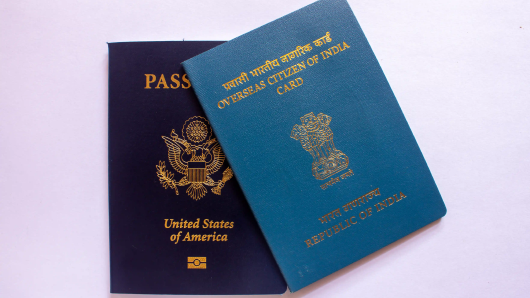Understanding NRE Savings Accounts: Features and Benefits Explained
April 15, 2025

If you are a non-resident Indian (NRI) looking for a convenient way to manage your foreign earnings in India, an NRE (Non-Resident External) Savings Account is worth considering. An NRE Savings Account is a Savings Account that allows NRIs to park their foreign income and enjoy tax-free interest while having the flexibility to fully repatriate their funds whenever they need.
However, since NRE Accounts fall under the purview of FEMA (Foreign Exchange Management Act), there are certain rules and regulations associated. In this article, we have outlined the various features and benefits of NRE Savings Account as well as the regulations that come with it.
Features and Benefits of NRE Savings Account
1. Higher Interest Rates
Though NRE Savings Account interest rates vary across banks, Small Finance Banks like Ujjivan SFB offer higher interest rates on such accounts. This can help you maximise returns on your savings.
2. Tax Benefits: Interest Earned Not Taxable in India
The interest earned on your NRE Savings Account is tax-free in India. However, you should check tax regulations in your country of residence as you may have to declare your interest income earned via NRE Savings Account.
3. Safe and Secure Fund Management
Thanks to NRI Accounts, managing funds in India while living abroad has become much easier. Such accounts facilitate safe and secure transactions.
Point to note: The funds held in an NRE Savings Account are maintained and transacted in Indian Rupees (₹). You can freely convert INR back to your home currency (on the basis on prevailing exchange rates) while transferring funds.
4. Fully Repatriable Funds
An NRE account offers fully repatriable funds, allowing you to transfer money from your NRE account to your overseas bank account without any restrictions. However, for NRO Savings Account, the repatriation limit is restricted to USD 1 million per year as per FEMA guidelines. There are no restrictions as such for NRE Accounts.
5. Convenient Account Access and High Liquidity
Like any NRI Account, you can access your NRE Savings Account anytime with the help of Internet Banking and Mobile Banking. Also, such accounts don't come with any lock-in period and allow easy withdrawal and transfer of funds whenever needed, subject to terms and conditions.
6. No Minimum Balance Requirement
Banks like Ujjivan SFB don't impose any minimum balance requirement for NRE Savings Account. This effectively mitigates the compulsion to maintain a specific balance in the account to keep it functional.
7. Additional Benefits
Few other benefits include inward and outward remittance facilities at competitive exchange rates, investment opportunities in India in various financial instruments like stocks, mutual funds, etc., benefits of Debit Card, safe and secure fund transfer across borders,
Maximising the Benefits of NRE Savings Account
Scenario 1: Planning for Retirement
Rajesh, an NRI working in the United States, wants to secure his retirement in India. He decides to open an NRE Savings Account to start saving for his future. By depositing a portion of his earnings into the account regularly, Rajesh can take advantage of the tax-free interest and repatriation benefits offered by the account. This allows him to grow his savings while maintaining financial flexibility for his retirement plans.
Scenario 2: Supporting Family in India
Priya, an NRI living in Canada, wants to support her family back home in India. She opens an NRE Savings Account to easily transfer funds to her family whenever they need financial assistance. The fully repatriable funds and convenient account access provided by the NRE account allow Priya to efficiently manage her finances and provide for her loved ones without any hassle.
Scenario 3: Investing in Indian Real Estate
Amit, an NRI residing in Oman, wishes to invest in real estate properties in India. He opens an NRE Savings Account with Ujjivan Small Finance Bank to accumulate funds for his investments. The competitive interest rates on the account balance help Amit grow his savings faster while the full repatriation facility ensures that he can transfer funds abroad when needed for property acquisitions or other real estate ventures.
All these scenarios reflect how NRE Savings Accounts can help you save for your goals. However, before making any investment decisions, it’s recommended to consult a registered investment adviser.
Disclaimer: The above scenarios are for illustration purposes only. The name of persons and situations depicted are fictitious and has no resemblance with any person living or dead.
NRE Savings Account: Deposit Rules and Regulations
You can deposit the following in your NRE Savings Account:
- Remittances from your overseas account or transfers from an NRE (Non-Resident External) or FCNR (B) (Foreign Currency Non-Resident Bank) account.
- Funds from your NRO account up to USD 1 million per financial year, applicable to capital income such as proceeds from fixed deposit maturities, property sales, and the redemption of mutual funds and shares.
- Current income earned in India, including rent, dividends, pensions, and interest.
- Interest earned on the balance in the account and on investments made from the account in India.
- Maturity proceeds from investments made using the NRE account.
Who can Open NRE Savings Account?
Any NRI and PIO (Person of Indian Origin) can open an NRE Savings Account upon submission of valid documents. The same has been listed below.
Documents Required to Open NRE Savings Account
- Passport
- Address Proof: Driving license, Voter’s ID, Aadhar card, job card issued by NREGA, etc.
- Non-Residential status proof in the form of Visa/Work Permit/Residence Permit for Indian Passport holder or OCI Card/document evidencing India connect for Overseas Passport holder
There could be other additional documents required. Please contact your bank for necessary information.
Final Thoughts
Opening an NRE savings account presents numerous benefits and features tailored for NRIs. With tax-free interest, full repatriation of funds, competitive exchange rates, and convenient access for family members, an NRE account offers a secure and efficient way to manage your foreign income in India.
Planning to open an NRI Savings Account to manage your income in India? Ujjivan SFB offers NRE Savings Account that comes with multiple benefits, including safe and secure inward and outward remittance facilities at competitive exchange rates, higher interest rates, Internet Banking and Mobile Banking facilities, and more.
Alternatively, you can browse through Ujjivan SFB product suite - our wide range of financial products are designed to make your financial life better.
FAQs
1. Are there any charges for transferring funds from my NRE account to my overseas bank account?
The fees and charges can vary across banks. For Ujjivan SFB, you can check the fees and charges here.
2. Can I transfer funds from NRO Account to NRE Account?
Yes, you can transfer funds from NRO Account to NRE Account subject to terms and conditions stipulated by FEMA. As per guidelines, NRIs can transfer only up to USD 1 million from an NRO Account to an NRE Account in a financial year. Also, you may need the following documents while transferring funds:
- Signed cheque/letter for funds transfer
- Form 15CA and 15CB for tax compliance
- Identity and address proof
- Bank statements
- FEMA declaration
- Documented evidence of source of funds
For better clarity, contact your bank.
3. Can I hold multiple NRE accounts with different banks?
Yes, you can maintain multiple NRE accounts with different banks as long as you comply with the Reserve Bank of India's regulations regarding maximum deposit limits.
4. What happens if I become a resident of India again?
If you change your residential status from non-resident to resident, your NRE account will be reclassified as a resident savings account. You will need to inform your bank and complete the necessary formalities.
5. Can I open an NRE account jointly with a resident Indian?
No, joint holding with a resident Indian is not allowed for an NRE account. However, you can open a joint NRE account with another NRI.
Latest Blogs

Telangana Housing Board & KPHB Colony: A Guide to Affordable Urban Housing in Hyderabad
March 14, 2025
As Telangana continues its rapid urbanisation journey, two key housing entities—Telangana Housing Board (THB) and Kukatpally Housing Board Colony (KPHB)—have played critical roles in shaping the state's real estate ecosystem.

Does Checking CIBIL Score Frequently Lower Your Credit Points?
April 07, 2025
Imagine you're planning to apply for a home loan, a credit card, or even a car loan. Naturally, you want to ensure your CIBIL score is in good shape before proceeding.

Explained: Can NRIs Buy an Agricultural Land in India?
April 03, 2025
Real estate investment is often a top priority for Non-Resident Indians (NRIs) looking to retain strong financial ties to India.

How to Improve Your CIBIL Score from 600 to 750: A Step-by-Step Guide
April 02, 2025
Your CIBIL score is like your financial reputation—banks check it before approving loans or credit cards. If your score is hovering around 600, you might face difficulties in securing credit or may get loans with higher interest rates.

What Happens When You Leave Your Savings Account Unused?
April 01, 2025
Imagine waking up one day to find that your hard-earned money is locked away and inaccessible. Sounds stressful, right? This is precisely what happens when you leave your Savings Account inactive for too long.




